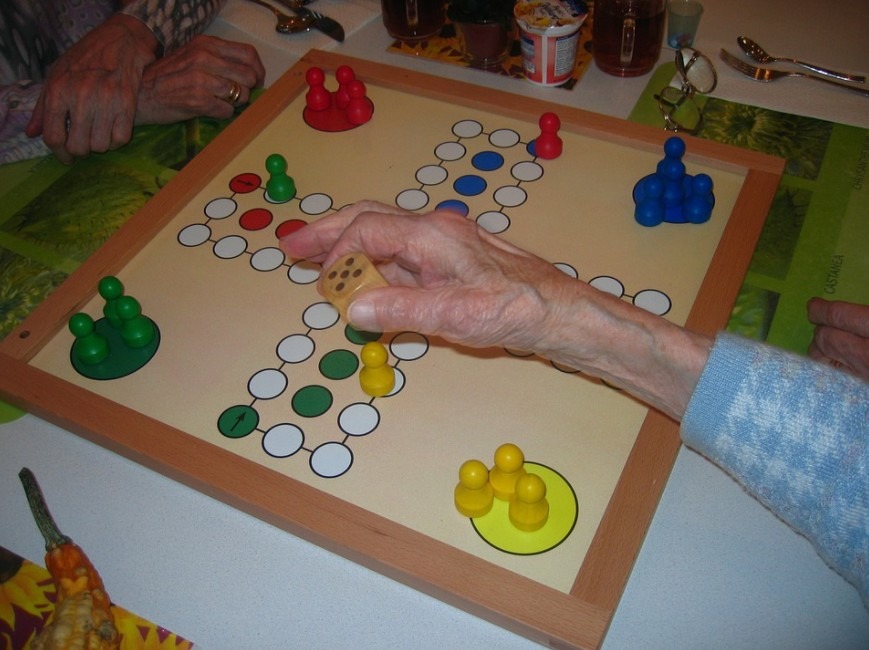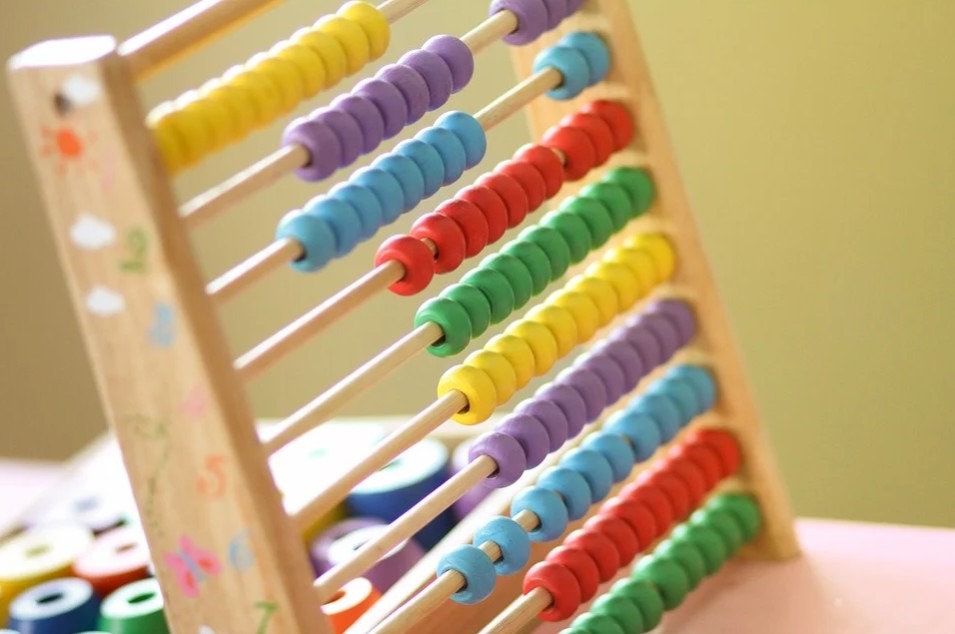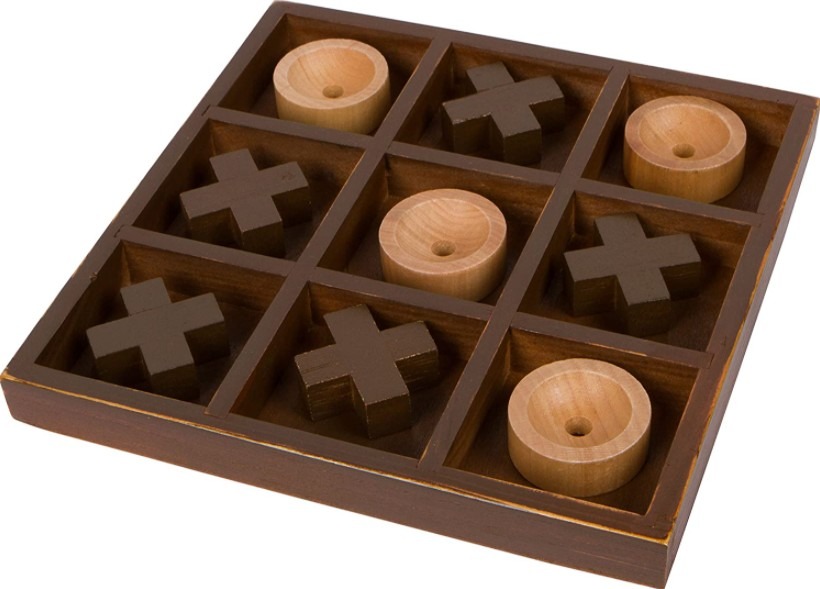There are many games for the elderly that can help them develop their thinking and stimulate brain functions. Playing games, such as card games, board games, and word games, are undoubtedly famous, but the seniors will grow tired of them. Most senior citizens prefer playing new and exciting games that have large prints.
They get bored quickly; hence they want to try something which looks intriguing and somewhat inviting. What are those?
Board games such as Bingo!, Soduko, Rummy, Chess, Scrabble, and puzzles such as Jigsaw and Crossword. Aside from those, video games can attract seniors’ attention, such as bowling and golf that they can also play on Nintendo Wii. Besides board games, there are also many outdoor games that they can play, such as badminton, croquet, horseshoe, and bocce ball.
Suggestions for Elderly Games
1. Math Bee
Math-related activities can be entertaining games for the elderly, especially those who have good cognitive skills and want to retain them. Do you remember having to recite your “times tables” aloud in class? The teacher would ask a multiplication question from us like, “8 times 8 equals what?” If your answer was wrong, you had to sit down, and after 20 minutes or so, whoever was left standing got a prize.
The same basic concept of a math bee can apply to the elderly by performing addition, subtraction, or multiplication of given numbers. Maybe make a group and let the group study or practice a little beforehand. Since the participants will be sitting, passing them colorful cards or pieces of paper to hold on to with each person having different colors. Or by giving them a number, putting it on their batch of cards.
If they get the question wrong, they have to put their cards in a basket. After the designated time, whoever still has the most cards gets the main prize, while at the same time, everyone gets a prize just for participating.
2. How Old Are They?
A game of guessing is popular among the elderly. Here’s a fun one try making a list of at least 20 famous people, either current or of the past, from an age group that would be of interest to the game participants.
Ideas: They can be movie stars, singers and musicians, prominent politicians, inventors, etc. (Some of them can include those who are deceased); they can consist of even more names after researching further online. Try to make them guess their ages or the age they would be if they were still alive. You can assign points for different answers, i.e., ten if correct, five if within five years, etc. The one or ones with the highest scores can win a reward if required. And if you know a celebrity’s birthday and the particular day, try to have them guess who it might be. The winner gets the most points!
3. Choose a Letter
The older people are fond of word games, and these work incredibly well and are quite popular, especially if you have a theme at your get-together (but not necessary). We’ve tried something like this at a luau (Hawaiian feast party). Here’s how it works, you’ve got to choose two words that have several letters: e.g., coconut and pineapple. Everyone writes them down, and then each person randomly selects any letter from those words, say the letter N.
Now everyone stands up (or raises a hand). The leader tells everyone who has chosen a letter, like P, to sit down, and then similarly those who selected the letter E must sit; then the letter N and so on. All the letters are called out until the last one is left to be called out. Whoever has chosen that final letter and is still standing wins the game and a prize.
4. Fact or Fiction
We love books about weird facts. You can get them from a library or order them online. They provide ample material for making exciting games. It can last for many game sessions, with ten to twenty weird statements.
In this game, you pass out pens and a single paper, numbered according to the number of your questions. You read a weird statement and ask participants if it’s a Fact or Fiction. They write the answer on the appropriate line. In the end, you read back the answers and the top winners get prizes.
5. Books
“Weird-o-pedia” and “The Huge Book of Strange Facts“ are some outstanding books that contain actual statements and questions such as: “Each American eats about 21 pounds of apples per year.” “Bananas can’t reproduce, so we may face a banana crisis.” “Brown glass bottles are better for beer than green or clear.” “Chocolate is better than kissing, for the mind and body.” “Humans can’t sneeze in their sleep.” “The deadliest creatures on earth are mosquitoes, with more deaths related to them than any other.” “There is a protein called, ‘I’m Not Dead Yet.’” and many others like them.
6. Topic Trivia
You can think up gazillions of trivia topics for this game and can play this game individually or in teams; in a bus, at a party, around a table, or at any time. You can keep track of the score your favorite way and write down answers, if you wish and perhaps call them out just for fun. Modify this according to your group.
7. Choose a Topic
There are many topics to choose from, such as heroes from tales and myths or favorite ice cream flavors. It can even be musical movies and plays or foods containing chocolate, etc. Each person or team writes or calls out as many answers as they can think of within a given time frame. You can have winners or lots of laughter at the elderly games.
8. Photo Puzzle
This isone of the most fun games if you have previously taken photos of each group member. Blow up the pictures on a color copy machine, so they are at least 8×10 in size. Divide the group into teams. Each team gets a photo that you have cut up into puzzle pieces, as complicated and appropriate for the group. Set a timer for the time frame you desire, let’s say about three to five minutes. The team who puts their puzzle together first within the time frame wins a prize.
9. Guess Who Game
Have everyone in your group bring a childhood photo of themselves. Write their name on the back. Put a post-it note with a number on the front. Attach them all to a bulletin board. Everyone in the group gets a pen and paper, with a list of all the numbers. After each number, they write the name of which person they think the child was. Whoever gets the most right wins a prize. (Name tags can also be worn).
Elderly games using photos can also include wedding pictures, if appropriate.
10. What I loved to do as a Child
Elderly games can also involve fun reminiscing. Go around the room with each person discussing their favorite activity or hobby when they were a child. Did they continue it as they grew? Why were they attracted to that activity? Are they still interested today? Do they still participate? If not, would they like to? If the activity is no longer possible to participate in, is there any way it can be modified in order to still enjoy it? Would others in the room also be interested? Sometimes interesting friendships or groups can be started this way, or interests renewed. And it definitely will spark fun memories and a few laughs.
11. Botanical Identification Game
Field trips are always popular– even if it’s just right outside. And you can also include elderly games with them. Have a field trip to a botanical garden if you can, or even through a community garden with a leader who can name and discuss the various kinds of flowers and plants and an interesting fact about each. Later, take a beverage and snack break.
Pass out paper and a pen to all. The leader then holds up a sample of 10 or so botanical specimens, depending on your group. Participants write down what it is and/or a fact about it. Or talk about it aloud. Whoever gets the most right wins a prize. It’s best to tell the group ahead of time that there will be a game at the end, so they can be sure to pay attention. This is lots of fun for anyone who loves gardening or nature and is also a good memory exercise.
12. Fall Leaves
There are many elderly activities to do with fall leaves. Start out by going out on a nice day around the yard, grounds, or a park. Bring a book on trees and leaves. The leader or guide can point out the various trees, tell something about them, and participants can gather leaves (it’s a good idea to bring a bag).
When you get back, play a memory game. Have the leader hold up various leaves, and participants remember what trees they were from. Also, try preserving leaves the old-fashioned way: Spread down newspapers. Then place leaves between 2 sheets of wax paper. Cover with newspapers and iron until the leaves are coated with wax. The newspapers absorb the extra wax. Let them cool. Remove leaves, and use them for decoupage projects, centerpieces, making garlands, or press between two sheets of clear contact paper to make place mats.
13. Bird Call Game
This goes along with learning to identify bird calls, which is fun all year round. (Inside during the winter). You can use a recording of bird calls from the library or from. Listen to the bird calls, about 5 to 8 at a time, and become very familiar. After a few practices, turn it into a memory game and see who can identify them. Even more, fun, go outdoors or look through a window in winter, and try to spot the birds. We did this with our grandpa when I was growing up, and it was great fun.
14. The Invention Game
The group leader will need to do a little online research in advance with this. Get about 25 common objects, especially old or vintage ones, and look up when they were invented. Ideas: zipper in 1891, the bottle cap in 1892, candy corn in 1898, the thumbtack in 1900, the fly swatter in 1900, the hearing aid in 1902, the tea bag in 1903, the paper towel in 1907, the gin rummy game in 1909, the fortune cookie in 1914, the tow truck in 1916, the toaster in 1919, water skiing in 1922, the cheeseburger in 1924, masking tape in 1925, Kool-Aid in 1927, the corn dog in 1927, the electric razor in 1928, sunglasses in 1029, etc. Who’dathunk! Spread the items out on a table. Have people guess and write down what year they think. If you guess within five years, you get 10 points; within ten years, 5 points. Or however, you want to structure it. Elderly games can be really fun and also quite educational!
15. Cognitive Video Games
Good elderly games are also out on video. Like excellent ones with individualized programs for cognitive fitness. You take a short assessment, then the program sets up your routine on the computer, and monitors progress, and responds to your current situation. They’re unique and individualized programs that can adjust as skills adjust. Based on scientifically designed tasks. There are many more fun video games available, and kids play them too, so make great teachers and partners.
16. Large Tic Tac Toe
One of the ever-popular elderly games is tic-tac-toe. An especially large game surface can be created by taking a white board either on a stand or set on a table or lap, and sectioning off the squares with bright tape, such as blue painter’s tape. This makes a permanent grid. The squares can be very large, even four or five inches across. Even those with visual impairment can play if the squares are large enough. Then erasable markers can be used for hours of fun. You can blow up a tic-tac-toe grid at a local printer, then trace mark it off onto your whiteboard. You’ll get instant and easy perfect squares without the hassle of measuring.
We recommend getting your hands on this amazing Wooden Tic Tac Toe Desk Top Table Game that every senior around will love. The best thing about this game is that once you guys are done playing the game, you can use the set as décor.
17. Name That Tune
Musical elderly games are always a great favorite, and this game is good for both memory and mood. You can find music books for the 1920s, 30s, 40s, etc., in music stores or online. Using recorded music works fine with this game, but of course, it’s even more fun to have someone play the piano or guitar. Begin by playing 3 to 5 notes of the song, then pause and let participants call out the tune if they can. Then add three more notes and pause, adding three notes each time until someone guesses. Prizes are always a hit!
18. “The Best Advice My Mother (or Dad) Ever Gave Me”
Elderly games that involve laughs are excellent mood lifters. This is a great party game, especially for birthdays. The birthday person gets to be the “judge.” Or else draw a name and let someone be “It.” Everybody writes down the best piece of advice given, then puts it in a bowl or box and passes it to the person who is “It.” “It” will read them all out loud (lots of laughs) and then choose the top 2 favorites. They get a prize (and they can also tell if they followed the advice!)
19. Fill in the Hymn
Get phrases from some favorite old hymns and leave out the words. Participants either call out the answer to fill in the phrase or write it down. When someone gets one right, they get a prize. Or if writing them down, whoever gets the most right gets a prize. Or whoever turns their answers in first and gets them all right wins. Other fill-in elderly games can include psalms, well-known scripture, and famous sayings or idioms.
20. Name That Musical Instrument
Very fun for those who have loved music in the past. Instrumental music is ideal for this game. You will need a music player with a pause button. Choose a well-known song (including classical), and that includes a variety of musical instruments – piano, guitar, drum, oboe, saxophone, violin, bass viola, cymbals, trumpets, etc.
Play the song first, if you’d like. Then as it plays, pause when a predominant instrument comes in, so the participants can either call out the instrument or write it down. This game encourages participants to stay focused and alert and to recall information. Plus, good music is calming and uplifting to listen to.
21. The Price is Right
Elderly games are available in the stores as board games, but you can also devise your own. Have several items from the store available that are familiar to your group and may still even shop for. Then draw names to “come on down.” The contestants guess at the price of an item or several. Whoever comes the closest but not over wins a prize.
22. Smile Toss Game
Elderly games can be great for bringing a smile to one’s face. This one is great on a dreary day or when the group needs a bit of cheer. Sit in a circle and toss a light-weight ball, or even a yellow balloon, with a smile painted on it (marker works too).
Everyone in the circle smiles, except the person who is “IT” with the ball. If he/she forgets to wipe their smile off when they get the ball, they get points. The person with the least points wins. There are several versions of this game. It usually erupts in lots of laughs, so it’s very challenging not to smile.
23. Using Kids’ Games and Toys
You may be familiar with the concept that young children’s toys and games are ideal for the elderly — being soft, large, easy to see, and use. But keep in mind that many elderly, including those confined to nursing homes, still may have enough savvy or pride to feel an activity is demeaning, silly, or “babyish” and may resist these. However, it is true that many educational toys and games for small children are also truly beneficial for seniors and can make great elderly games.
A great solution is to have your loved one, when possible, participate in a child’s activity with a child. That can include grandkids, someone else’s grandkids, or having young children from a local school or scout troop come and visit. Even older children are usually enthusiastic about playing “younger” games with the elderly because they understand the goal.
About Games
Games for seniors are not only fun but also very important to our brains. We discussed the importance of our mental muscles on another page. Some of these mental factors includeReason, Imagination, and Memory.
Various games are geared to stimulate memory, promote focus and attention, relieve stress, encourage language skills and cognitive skills, etc. All while having lots of fun. Almost any type of game is valuable. There are also excellent elderly games on the video to enjoy. And fun to play with kids. Or be taught by kids!
Numerous studies have discussed that genetics is only a portion (approximately a third) of what impacts our memories and brain function.
As we’ve discussed in our health, nutrition, and dementia pages, other key factors include attitude, exercise, the foods we eat, sleep, medication, stress, and activities, including elderly games – to name a few. So it’s important that seniors participate in as many activities as possible that promote a healthy lifestyle.
You may also check out our Guide to Selecting Fun Games for Seniors for more ideas.




